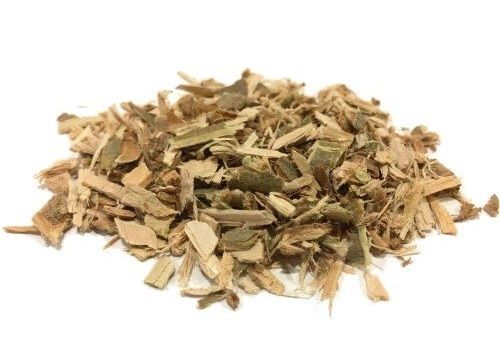- Native Remedies
- Ingredients List
- White Willow Bark
White Willow Bark
Health Benefits of White Willow Bark
English Name: White Willow Bark
What is White Willow Bark?
Native to Europe and Central and Eastern Asia, the white willow tree got its name from the pale hue of the undersides of its leaves. In fact, its leaves are entirely covered in fine, silky white hairs, making them lighter in color overall than other willow trees. The fast-growing tree is now found all over the world except in Australia and Antarctica. Many parts of the white willow tree have been used throughout history for practical purposes, from weaving baskets of the young stems to tanning leather with its dark tannins to fashioning cricket bats from its wood. For over 5,000 years, the bark of the white willow has been prized for its medicinal properties, with documentation from ancient Greeks, Egyptians and Assyrians about its role in easing pain and reducing fevers. Traditionally, the bark was chewed or boiled into tea for consumption, though capsules or tinctures of white willow bark extract are much more common today.
How does White Willow Bark work?
The active component in white willow bark is salicin, a chemical similar to salicylic acid, more commonly known as aspirin. The salicin in willow bark actually converts to salicylic acid after being ingested, so its effects on the body are similar to those of aspirin, though many find white willow bark gentler on the stomach than aspirin. For this reason, white willow bark is often referred to as “nature’s aspirin.” All salicylic acid works by lowering the body’s levels of prostaglandins, which are hormone-like substances that cause inflammation and its attendant aches and pains. The bark also contains high levels of antioxidants, making it a powerful anti-inflammatory that can help ease many symptoms caused by inflammation in the respiratory and gastrointestinal systems and large and small joints of the body.
What are the benefits of White Willow Bark?
As a substitute for synthetic aspirin, white willow bark offers many of the same benefits of taking aspirin without the side effects of stomach cramps and bleeding3. Although it may take a bit longer for white willow bark to begin affecting discomfort, its effects tend to last longer than that of synthetic aspirin. Ingesting willow bark can be effective for easing headaches, minor lower back and joint pain, menstrual cramps, fever and the pain and inflammation associated with osteoarthritis. The anti-oxidant properties of white willow bark have also been found to support the metabolism-boosting and fat-burning qualities of other herbal products, making it an effective aid for weight control. Applying willow bark extract topically can offer relief from bug bites and brighten the skin due to its high concentration of antioxidants.
Products Featuring White Willow Bark
For Humans:
Inflam Dr.™ for Whole Body Health

Native Remedies recommends you consult your doctor before introducing new herbal products into your regimen. Always ensure you are buying high-quality, laboratory-tested supplements from a reputable supplier. At Native Remedies, we back all our products with a 100 percent money-back guarantee. If you’re not happy with your purchase after trying it for 30 days, simply send it back for a refund. Here’s to your good health!
The content provided is for informational purposes only. It is not a substitute for professional medical advice. If you have a health condition, please consult a medical professional and do not use this information to self-diagnose or self-treat.
Resources:
[1] "8 Impressive Benefits of Willow Bark." Organic Facts. May 14, 2018. Accessed October 06, 2018. https://www.organicfacts.net/health-benefits/other/health-benefits-of-willow-bark.html.
[2] "White Willow Bark." WholeHealth Chicago. June 04, 2018. Accessed October 06, 2018. https://wholehealthchicago.com/2009/05/19/white-willow-bark/.
[3] Shara, M., and S. J. Stohs. "Efficacy and Safety of White Willow Bark (Salix Alba) Extracts." Current Neurology and Neuroscience Reports. August 2015. Accessed October 06, 2018. https://www.ncbi.nlm.nih.gov/pubmed/25997859.
Reviewed by Master Herbalist, Mary Ellen Kosanke